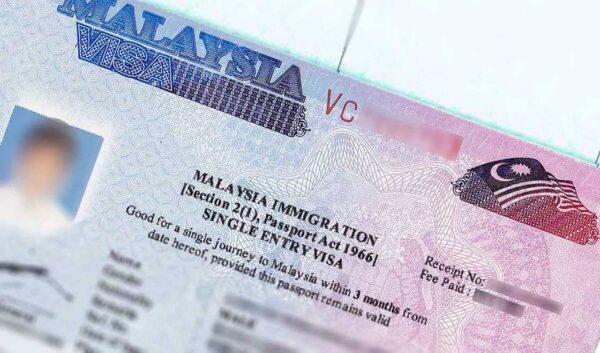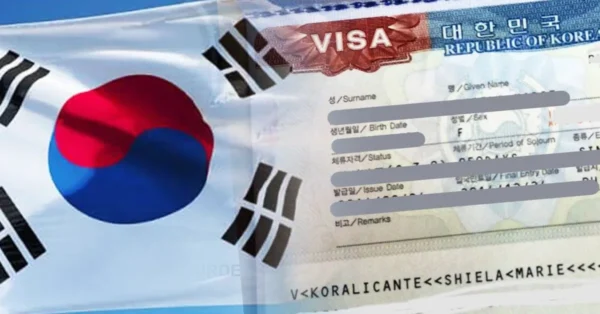As an international student in the UK, whether at the postgraduate or undergraduate level, it's normal to seek other visa options that allow you to legally stay in the UK after your studies. Getting a work visa after studying in the UK might be the best decision you will make for yourself and your career. There are different routes and visa categories to take if you want to transition from a student to a work visa. Let's see what you should do to stay and work in the UK after being a student, the post-study visa option, and the application process.
Why You Should Stay and Work in the UK After Study
Deciding to stay and work in the UK after studying can create an amazing career advancement opportunity. While at it, you'll also gain international experience to help you attain long-term success. Here's why you should go for a work visa after studying in the UK:
1. Gain UK Work Experience
The United Kingdom has one of the world's best economies with many industries, making it a perfect opportunity to gain hands-on knowledge after school. By working in the UK, you can experience what it feels like to work in an international environment. Gaining firsthand knowledge of your field of study in leading companies in the UK can help you gain industry insight while understanding industry trends and practices. When you decide to return to your country or settle in other countries, having UK work experience will give you an edge in the labor market.
2. Opportunities for Career Growth
If you want a structured career progression path or amazing mentorship opportunities, you should consider staying in the UK after your studies. You can access skill enhancement opportunities and training from professional certifications to on-the-job training. There are also opportunities to connect with professionals in your field, attend industry events, and collaborate with experts. If you're also looking forward to settling in the UK permanently, you should open up. Work visa after study in the UK, as this might be your pathway to permanent residency.
3. High Demand for Skilled Workers
When it comes to the labor market, the UK faces skill shortages in some key industries. These industries include finance, healthcare, academia, technology, and engineering. Because of this, there's a high demand for skilled workers, creating opportunities for international graduates. Even the UK government encourages skilled workers to return via the graduate or skilled worker visa. Also, many UK employers and companies are ready to sponsor work visas for qualified graduates. With a solid sponsorship, you can transition from being a student to an employee without worrying much about work visa sponsorship.
Post-Study Work Visa Options

Different post-study visa options in the UK can give you legal immigration status. Each graduate visa offers an advantage, depending on your end goal. It doesn't matter if you're exploring job opportunities, seeking international opportunities, or aiming for UK job experience; there is something to go around. The first step after deciding to stay in the UK after studying is to identify the type of visa that best aligns with your goals. Let's check these post-study work visa options.
1. Graduate-Route Visa
If you're a recent graduate looking to transition into the UK workforce, a graduate-route visa might be your best bet, irrespective of your degree level. It's the simplest visa route and is mostly accessible to recent graduates. With this graduate visa, international undergraduate and MSc students can stay in the UK for up to 2 years. Graduates with postgraduate degrees, like PhD holders, can stay for 3 years after their studies. Within 2-3 years, international graduates can look for work in any role of their choice with the help of their relevant qualifications. With these, foreign graduates can explore different career options.
To be eligible for this visa, you must complete your degree at any higher institution in the UK. Likewise, your current visa must be valid at the time of your application; this means you must apply for the graduate-route visa before your student visa expires. The benefit of this visa is that you don't need a work sponsorship or job offer; you only need to apply as citizens or permanent residents do. Applying for this visa is straightforward, but you need to be careful with the process. You must submit the necessary documents and apply through the UK Visas and Immigration (UKVI) portal. Evidence of degree completion is an important document needed for your application. Likewise, you must pay a visa application fee of £822 and an annual immigration health surcharge of £624 per year.
2. Skilled Worker Visa
Getting a job offer from a licensed sponsor or UK employer can also help you secure a work visa after studying in the UK. The skilled worker visa is a perfect graduate visa for international graduates who aim to settle in the UK for a longer duration. It is designed for skilled workers in eligible occupations and can allow foreigners to live and work in the UK for up to 5 years, after which you can renew. Also, with this visa, you can bring in dependents from your home country to join you in the UK.
To make this happen, as a skilled worker visa applicant, you need a job confirmation offer from a licensed UK employer or company that will be a responsible sponsorship provider. A job offer letter is not enough, but ensuring your job is under the eligible occupations listed by the UK government. Likewise, whatever job you're going for must meet the UK's minimum salary requirement, usually about £20,960 per year.
Meeting the English proficiency criteria is also important to confirm that you don't have issues communicating with the locals or your colleagues at work. Applying for the skilled worker visa requires your employer's Certificate of Sponsorship (COS). You just have to apply online and book a biometric appointment. The visa application fee ranges between £719 to £1,500, and an annual immigration health surcharge of £624 per year must be paid.
3. Innovator Founder Visa
If you're currently a student visa holder and looking forward to starting a business in the UK after your studies, you should apply for the innovator founder visa. This is a perfect work visa after study in the UK for business-oriented international graduates with innovative business ideas. It's also important to know that whatever business you want to start in the UK must be innovative, viable, and scalable. You must provide clear and detailed information about your business activity and how you want to implement your ideas.
Getting an innovator work visa after studying in the UK requires an endorsement from an approved body in the UK. This confirms that your business idea is up to standard and meets the required criteria. You also need to prove that you can take care of yourself while you are in the UK; you must have savings of at least £1,270. The innovator founder visa has a 3-year validity with an option to renew before expiration. You're right on track once you apply online and pay an application fee of £1,036. You will be requested to provide your biometric data and be scheduled for an interview appointment.
4. Youth Mobility Scheme
The Youth Mobility Scheme offers temporary work opportunities for young individuals from eligible countries like Australia, Canada, New Zealand, Hong Kong, etc. To apply for this visa, you must be between 18 and 30 years old at the time of application. After you've successfully completed your application, you can live and work in the United Kingdom for 2 years. If you prefer short-term work experience, this might be a befitting opportunity you shouldn't miss out on.
The best thing about this work visa is that you don't need to go through the hassle of seeking work visa sponsorship, as it is not required for your visa application. With this visa, you can work in any job role of choice or start a business. For the financial requirement, you must show that you have at least £2,530 in savings. With just £259, you can get your application rolling.
General Application Process For a Work Visa After Study in the UK
Different post-study visas require different eligibility criteria in the application process. However, here are general application key steps for a smooth ride:
1. Be Sure You Met the Eligibility Criteria
Meeting the eligibility criteria is the basics of your application, so it is a stage you need to be careful with to avoid work visa refusal. In addition to the documents mentioned below, you might be asked for additional requirements depending on your type of employment or visa type.
Common requirements for a post-study visa usually include the following:
- Completion of an eligible UK degree or qualification.
- A valid Student Visa.
- Proof of sufficient funds to support yourself (depending on the visa type).
- Meeting any additional criteria specific to the visa (e.g., job offer for Skilled Worker Visa, business plan for Innovator Founder Visa).
2. Gather The Required Documents
Next, gather the required documents to back up your application. This document is also dependent on the visa option you are going for. Here are the commonly required documents:
- A valid passport or travel document.
- Confirmation of Acceptance for Studies (CAS) or your degree certificate.
- Proof of English proficiency (if applicable).
- Financial evidence (e.g., bank statements).
- Certificate of Sponsorship (for Skilled Worker Visa).
- Endorsement letter (for Innovator Founder Visa).
- Police clearance certificate stating zero criminal conviction.
3. Start and Complete Your Online Application
For your online application, you need to visit the UK Visas and Immigration (UKVI) website to complete the online application form for the visa you choose. You should start by creating an account, then filling in the necessary details and uploading all the required documents. You'll be asked for your education history and information specific to your visa. Likewise, you will be required to pay your application fee online, which varies with different visas, but you will get the actual figure you will pay on the portal.
4. Schedule a Biometric Appointment
Once your online application is complete, you will be asked to provide your biometric information, including fingerprints and a photograph. However, you need to book an appointment with the UK Visa and Citizenship Application Services (UKVCAS) center to do this. Once you've secured a date, attend the appointment on time and bring all necessary documents with you.
5. Wait for Approval and Get Your Biometric Residence Permit
After submitting your application and attending a biometric appointment, you have to wait for the application processing to be fine. Depending on the visa type, processing time varies between 3 and 8 weeks. However, if your application is successful, you will get a confirmation via email or the application portal. You will also be getting a biometric residency permit, which will carry your visa details, validity dates, and conditions guiding the visa. This permit is proof of your legal stay as a foreign national in the UK. Before you celebrate, ensure that every piece of information on your permit is correct.
Tips for a Successful Visa Application
The following are tips for international graduates applying for a work visa after study in the UK:
1. Apply Early
It is very important to start your application early to avoid stress and focus on other things. Beginning your application before your student visa expires is the right thing to do. This will help you avoid being an overstayer, which is an immigration violation and can impact future visa applications. Also, starting your application early will give you enough time to address potential delays since processing might take several weeks.
2. Double-Check Your Information
Accuracy can not be overemphasized in visa applications, as any error or discrepancies can lead to a big issue or even visa application rejection. Pay attention to details by ensuring that your name, date of birth, passport number, and any other details are the same across all your documents. Likewise, ensure that all requested documents are current and meet the UKVI's specifications.
3. Seek Professional Advice
If you feel the immigration laws are too complex and need a helping hand, you should seek professional guidance to avoid wasting time, effort, and unnecessary spending. There are licensed immigration advisors who can help you understand eligibility criteria and prepare documentation while navigating the process with you. Leveraging university services is another way to go, as many universities in the UK offer free visa guidance for international students. Some universities also offer workshops and one-on-one consultations based on your student record.
Conclusion
Securing a post-study visa in the UK is a bold yet exciting step toward building the career of your dreams while enjoying the boundless opportunities that come with living in the UK. Whether you aim to gain valuable work experience, advance your career, or even launch your own business, getting a work visa after study in the UK will help you achieve your goals. Take that bold step today and see your dreams come true.
















